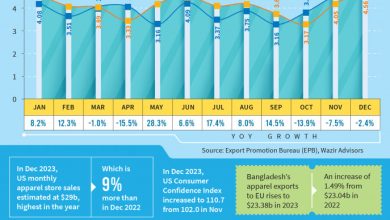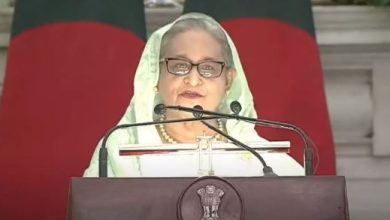More garment industries take the sustainable growth path

The ability to survive and grow — this is how DBL Group defines sustainability as a core principle.
Pioneering eco-conscious practices well ahead of many competitors, the conglomerate adopted solar energy for a reliable power supply and implemented initiatives for recycling and treating wastewater.
Since 2013, DBL has consistently published sustainability reports, earning the trust of globally renowned buyers and development organisations such as Care International, the German Investment Corporation or DEG, the International Finance Corporation (IFC), the German Development Agency or GIZ, the International Labour Organisation (ILO), and Unicef.
While DBL blazed the trail, a shift towards sustainability is now evident among a dozen garment manufacturers who are emulating DBL’s commitment.
These companies have initiated the publication of sustainability reports, with an additional 20 factories in the process of preparing similar documents.
This collective effort aligns with the upcoming European Union’s Corporate Sustainability Due Diligence Directive, scheduled to be in effect by 2025.
Industry insiders expect a higher number of factories participating, emphasising that non-compliance at any stage of the supply chain will result in penalties once the EU’s due diligence directive is fully implemented.
The garment exporters that are publishing sustainability reports include Cute Dress Industries, Pacific Jeans, TEAM Group, Viyellatex, Urmi Group. Masco Group is in the process of initiating this reporting.
“Our sustainability initiatives exemplify our commitment to creating a greener, more inclusive, and socially responsible world. I hope this sustainability report will inspire many, knowing that each step counts in preserving our planet for future generations,” said Abdullah Hil Rakib, managing director of TEAM Group.
Syed M Tanvir, managing director of Pacific Jeans, told the report will provide a “comprehensive analysis of our business’s long-term progress and performance”– shedding light on its sustainability efforts. He emphasised that this approach aids in optimising the use of raw materials and various resources.
DBL’s Chief Sustainability Officer Mohammed Zahidullah told, “Now several buyers want to know about the environmental, social and governance (ESG) practices in their supplier companies. These issues will be reflected in the sustainability report.”
He also mentioned that this report will give a preference to buyers while placing orders, as Western consumers are concerned about ESG practices.
Zahidullah said the EU’s upcoming due diligence rules may also focus on ESG practices and performance. Factories which have been publishing sustainability reports will get a preference to do business with EU countries.
He said in future, factories will not have to publish their company’s profile brochure as their sustainability report will replace that.
Sheikh H M Mustafiz, managing director of Cute Dress Industries Ltd, said, “We decided to publish the sustainability report on our own about five years ago. However, in the coming days, RMG factories have to publish it to make them traceable and transparent to assess their human rights and environmental footprint following the EU’s due diligence rules.”
“It will help to improve factory branding as well as strengthen our negotiation power,” he said.
Mustafiz also mentioned that they faced some challenges, including data digitisation, in the initial stage. However, now they are facing another challenge to improve wastage reduction in the line of their targets.
He further explained that wastage calculation depends on fabric thickness. Due to work order fluctuations, it remains challenging to reduce the consumption of water, electricity and carbon emissions year by year.
Echoing the same, DBL’s Zahidullah said, “We are trying to improve our sustainability gradually, which is reflected in our reports. However, sometimes it becomes difficult due to some external issues.”
“Due to low pressure in gas supply, apparel exporters have to run their diesel generators to meet shipping deadlines which increases carbon emission footprint,” he added.
ATM Mahbubul Alam Chowdhury Milton, executive director at Masco Group, said the group has established its own set of objectives aligned with the UN’s Sustainable Development Goals (SDGs). Concurrently, various global brands have also committed to reducing carbon emissions and adopting sustainable raw materials within their respective targets.
The group is actively engaged in several sustainability initiatives, including real-time data digitisation. Emphasising this commitment, Milton said, “We are dedicated to achieving traceability and fostering accountability while minimising waste, carbon emissions, and the use of hazardous chemicals.”
“Our sustainability report will comprehensively showcase the outcomes of all these initiatives, analysing the collected data. This proactive approach is akin to a self-audit, conducted preemptively before any inquiries from buyers or business partners,” he added.
BGMEA is also taking initiatives
As the leading association of apparel exporters, the Bangladesh Garment Manufacturers and Exporters Association (BGMEA) has also been publishing its sustainability report since 2020.
“We have transformed and upgraded our industry to make it more resilient. Besides workplace safety, our RMG industry has been proactively contributing to sustainability. Many of our members already have sustainability reporting practices,” said BGMEA President Farque Hassan.
The BGMEA president said BGMEA also declared its “Sustainable Strategic Vision 2030” in line with SDG goals. The industry aims to reduce carbon emissions, energy and groundwater usage, and increase the use of sustainable raw materials, use of Zero Discharge of Hazardous Chemicals (ZDHC), and renewable energy.
Sheikh H M Mustafiz, who is also the chairman of the BGMEA Sustainability Standing Committee, said that the association will publish a biennial sustainability report starting next year based on data from their member factories. Earlier the report was published based solely on the association’s own data.
Bangladesh is a hub of 206 green factories that received certification from the United States Green Building Council (USGBC) for their green initiatives, such as reduction in energy and water uses and carbon footprint.
Commitments reflected in the sustainability report
The report also underscores a commitment to implementing impactful environmental, social, and governance (ESG) initiatives, aligning with sustainable and responsible business practices and sustainable development goals (SDGs).
As a part of the concatenated activities, apparel exporters took this initiative to report their sustainability performances through the lens of the Global Reporting Initiative’s (GRI) sustainability reporting framework.
Globally, the GRI reporting structure is validated and acclaimed by all stakeholders and adopted by major businesses.
Recently, some exporters also followed the Sustainability Accounting Standards Board (SASB) standards while producing their reports.
SASB Standards enable organisations to provide industry-based disclosures about sustainability-related risks and opportunities that could reasonably be expected to affect the entity’s cash flows, access to finance or cost of capital over the short, medium or long term.
What is the EU’s Due Diligent Directive?
The proposed Corporate Sustainability Due Diligence Directive is a significant piece of EU legislation, mandating both EU and non-EU companies operating in the 27-nation bloc to conduct environmental and human rights due diligence throughout their operations, subsidiaries, and value chains.
Germany has already implemented a similar due diligence law since the beginning of this year.
The EU Due Diligence Act will affect larger EU and non-EU companies. Estimates show that the directive may be applied to 13,000 EU businesses and 4,000 non-EU businesses. Small and medium-sized businesses are technically exempted but will likely see some impact when doing business with larger firms.






